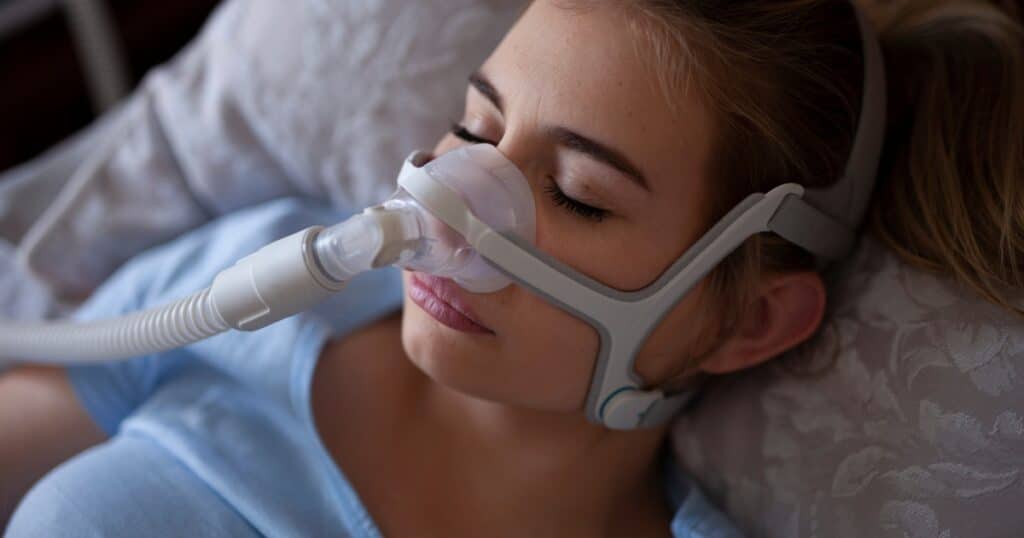Sleep apnea is a serious condition that affects your ability to breathe while sleeping. It can disrupt sleep patterns, leaving them feeling tired and unrefreshed the next day. However, making specific lifestyle changes can improve sleep apnea symptoms. In this blog, we’ll explore practical tips that people can implement to manage sleep apnea better. Incorporating these changes may reduce the need for medical interventions and lead to more restful nights. For effective sleep apnea treatment, lifestyle changes combined with medical support can make a noticeable difference.
What is Sleep Apnea?
Sleep apnea is a condition where breathing repeatedly stops and starts during sleep. It leads to interruptions in rest and can cause various health problems, such as high blood pressure, heart disease, and daytime fatigue.
There are two common types: obstructive sleep apnea (OSA) and central sleep apnea. OSA occurs when the muscles in the throat relax too much, blocking airflow. Central sleep apnea happens when the brain doesn’t send proper signals to control breathing. Either form can have a major impact on your health, but lifestyle changes can help alleviate symptoms.
Effective Lifestyle Changes to Improve Sleep Apnea
1. Maintain a Healthy Weight
For many people, being overweight is a significant factor contributing to sleep apnea. Excess weight can lead to fatty deposits around the neck, narrowing the airway and making it harder to breathe while sleeping. Here’s how weight management can help:
- Lose even a small amount of weight: Losing just 10% of your body weight can improve airflow and reduce sleep apnea symptoms.
- Eat a balanced diet: Focus on eating healthy foods like fruits, vegetables, and lean proteins while limiting processed foods and sugar.
- Exercise regularly: Regular physical activity, such as walking or swimming, can support weight loss and improve overall health.
2. Sleep on Your Side
Sleeping on your back can cause your tongue and soft tissues in your throat to collapse and block the airway. Switching to a side-sleeping position may reduce the severity of your sleep apnea. Here’s how you can try it:
- Use a body pillow: A body pillow can help maintain a side-sleeping position.
- Elevate your head: A slight elevation of your head can also aid airflow and reduce obstruction.
3. Avoid Alcohol and Sedatives
Alcohol and sedatives can relax the muscles of the throat and increase the likelihood of airway obstruction during sleep. If you’re thinking of getting sleep apnea treatment in Manvel, it’s wise to avoid:
- Drinking alcohol: Especially close to bedtime, as it can worsen symptoms.
- Taking sedatives or sleeping pills: These can relax your throat muscles, increasing breathing disruptions.
4. Practice Good Sleep Hygiene
Quality sleep is essential for managing sleep apnea. Practicing good sleep hygiene ensures you get the best rest possible. Tips include:
- Stick to a consistent sleep schedule: Go to bed and wake up at the same time each day to regulate your body’s internal clock.
- Create a comfortable sleep environment: Keep your bedroom cool, dark, and quiet for an optimal sleep setting.
- Limit screen time before bed: The blue light from phones and tablets can interfere with your sleep, so avoid screens at least an hour before going to bed.
5. Stay Hydrated
Dehydration can lead to thick mucus and congestion, which can worsen sleep apnea symptoms. Ensure you drink enough water throughout the day to keep your airways clear. Hydration can also help maintain the health of your throat tissues.
6. Consider an Air Purifier
For people who live in areas with allergens or pollutants, using an air purifier in the bedroom can help improve air quality. Clean air helps reduce congestion and keeps the airways open, which may reduce sleep apnea symptoms.
7. Quit Smoking
Smoking increases inflammation in the airways and makes sleep apnea symptoms worse. For those looking for sleep apnea treatment in Manvel, quitting smoking is one of the most beneficial changes you can make. Smoking can also increase the risk of other health issues, so cutting out tobacco can improve both your sleep and overall health.
When to Seek Professional Help?
While lifestyle changes can significantly alleviate symptoms, you may still need professional help to manage sleep apnea. If you have severe symptoms or don’t see improvement after making these changes, it’s essential to consult a healthcare provider. Treatments such as CPAP (Continuous Positive Airway Pressure) machines, dental devices, or surgery may be required.
Sleep Apnea Treatment
Manvel residents can access a variety of local treatment options for sleep apnea. Speak to a healthcare provider to explore your treatment options, including lifestyle interventions, sleep studies, and medical devices. With the right combination of lifestyle changes and professional care, it is possible to manage and reduce the effects of sleep apnea.

